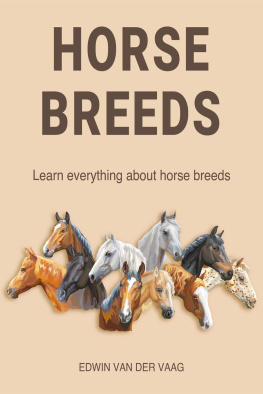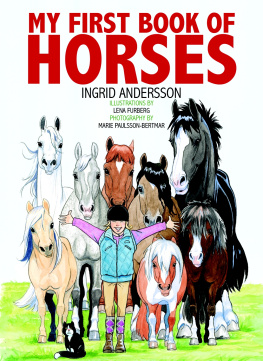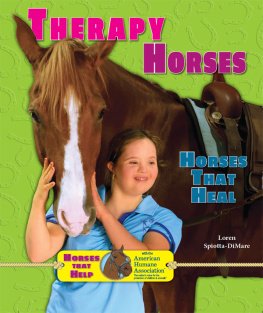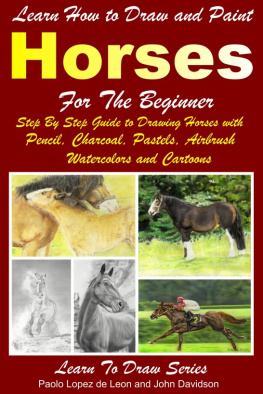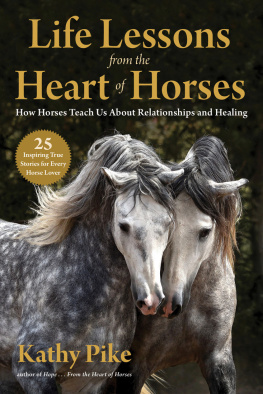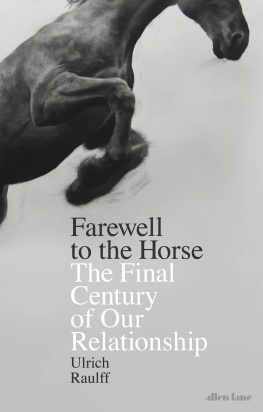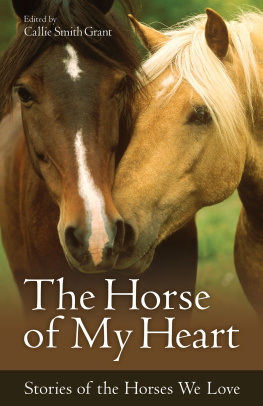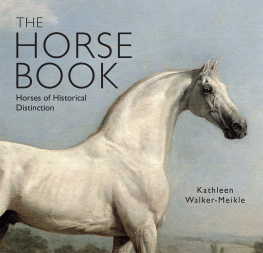Soldiers and their Horses
The soldier-horse relationship was nurtured by The British Army because it made the soldier and his horse into an effective fighting unit. Soldiers and their Horses explores a complex relationship forged between horses and humans in extreme conditions. As both a social history of Britain in the early twentieth century and a history of the British Army, Soldiers and their Horses reconciles the hard pragmatism of war with the imaginative and emotional responses it inspired. By carefully overlapping the civilian and the military, by juxtaposing sense and sentimentality, and by considering institutional policy alongside individual experience, the soldier and his horse are re-instated as co-participators in The Great War. Soldiers and their Horses provides a valuable contribution to current thinking about the role of horses in history.
Jane Flynn , PhD, is a teacher, historian, and writer with research interests in myth, memory, national identity, and the visual representation of work and war. Jane blogs on www.janeflynn-senseandsentimentality.com and hosts the Facebook group Horses and History. She brings a lifelong passion for horses to her work.
Routledge Studies in Cultural History
79 Print Culture and the Formation of the Anarchist Movement in Spain, 18901915
James Michael Yeoman
80 Reform, Revolution and Crisis in Europe
Landmarks in History, Memory and Thought
Edited by Bronwyn Winter and Cat Moir
81 Tattoo Histories
Transcultural Perspectives on the Narratives, Practices, and Representations of Tattooing
Edited by Sinah Theres Klo
82 Cultural Organizations, Networks and Mediators in Contemporary Ibero-America
Edited by Diana Roig-Sanz and Jaume Subirana
83 Soldiers and Their Horses
Sense, Sentimentality and the Soldier-Horse Relationship in The Great War
Jane Flynn
84 The Magic Lantern at Work
Witnessing, Persuading, Experiencing and Connecting
Edited by Martyn Jolly and Elisa deCourcy
85 Women Photographers of the Pacific World, 18571930
Anne Maxwell
For more information about this series, please visit: https://www.routledge.com/Routledge-Studies-in-Cultural-History/book-series/SE0367
First published 2020
by Routledge
52 Vanderbilt Avenue, New York, NY 10017
and by Routledge
2 Park Square, Milton Park, Abingdon, Oxon OX14 4RN
Routledge is an imprint of the Taylor & Francis Group, an informa business
2020 Taylor & Francis
The right of Jane Flynn to be identified as the authors of the editorial material, and of the authors for their individual chapters, has been asserted in accordance with sections 77 and 78 of the Copyright, Designs and Patents Act 1988.
All rights reserved. No part of this book may be reprinted or reproduced or utilised in any form or by any electronic, mechanical, or other means, now known or hereafter invented, including photocopying and recording, or in any information storage or retrieval system, without permission in writing from the publishers.
Trademark notice: Product or corporate names may be trademarks or registered trademarks, and are used only for identification and explanation without intent to infringe
Library of Congress Cataloging-in-Publication Data
Names: Flynn, Jane, author.
Title: Soldiers and their horses : sense, sentimentality and the soldier-horse relationship in the Great War / Jane Flynn.
Description: New York, NY : Routledge, 2020. |
Series: Routledge studies in cultural history ; 83 | Includes bibliographical references and index.
Identifiers: LCCN 2019047271 (print) |
LCCN 2019047272 (ebook) | ISBN 9780367894702 (hbk) | ISBN 9781003019350 (ebk)
Subjects: LCSH: War horsesGreat BritainHistory 20th century. | AnimalsWar useGreat BritainHistory 20th century. | Human-animal relationshipsGreat BritainHistory20th century. | World War, 19141918Veterinary serviceGreat Britain. | Great Britain. ArmyRemount service.
Classification: LCC UE475.G7 F55 2020 (print) |
LCC UE475.G7 (ebook) | DDC 940.4/1241dc23
LC record available at https://lccn.loc.gov/2019047271
LC ebook record available at https://lccn.loc.gov/2019047272
ISBN: 978-0-367-89470-2 (hbk)
ISBN: 978-1-003-01935-0 (ebk)
Typeset in Sabon
by codeMantra
I would like to thank Dr. Diana L. Ahmad for her unstinting encouragement and support of this project. Also, I thank the many scholars and practitioners in the Animal Studies and Horse-Human History communities who have helped me to think about horses better. I would like to thank the editors at Routledge for their assistance with the manuscript, and particularly Max Novick for his expertise and advice. Thank you to Captain Holtby at Prince William of Gloucester Barracks Grantham for allowing access to their archives, and to Mel Gould at the Loughborough Carillon Museum for his help during my hunt for Songster. Thanks also to the very helpful staff in Special Collections at Leeds University and Sheffield University, the Imperial War Museum in London, The British Library at Boston Spa, and the staff and volunteers at Derby Museum. Thanks to my Mum, my family and friends; so many of whom have helped to keep me sane. Thanks to the soldiers and their horses. Lastly, and by no means least, endless thanks to my wonderful husband Andy.
I used to feel sorry for the horses cause they cant speak to you can they?
Private R.C. Bird
He wept profusely when talking to me of the sufferings experienced by the wounded
In 1916, Captain M.D. Eder published an article in The Lancet on the Psycho-Pathology of the War Neuroses. Amongst several studies, Captain Eder considered the case of a 25-year-old private in the Royal Engineers. Case 45 was described as a thick-set, sturdy fellow, jovial and kindly, the son of an agricultural labourer. He had been brought up around horses, and had recollections of being put up on the plough horse by his father. As a boy, he had helped around the stables, and later became a groom. He had a natural empathy with horses and was always given the difficult ones to manage. Case 45 had survived Gallipoli. In Salonika, he was thrown from a bridge when the horses he was holding were startled. Having survived drowning, he again escaped injury only days later when his horse was shot from under him. Although suffering from insomnia, terrifying dreams, and shaking hands, he had been able to temporarily repress the cause of his trauma whilst actively engaged looking after his horses. When hospitalised with frostbite and condemned to inactivity the soldiers symptoms became more acute. His terrifying dream remained the same:
I see a Frenchman digging a knife into a horse. He gets off his cart to do this. It was in Serbia. Not only at night but during the day this comes up as a vision. It is an actual occurrence. He saw a French transport soldier, drunk, get off the wagon and plunge a knife into a mule to make it go. With some others he stopped the Frenchman and drove the wagon into quarters.
Captain Eder was keen to re-interpret his patients dreams, arguing that the young soldier had merely projected his fears for himself onto the mules. In Eders opinion, it was the patient who was in fact the mule of the dream. Although Eder was clearly sympathetic to his patients suffering, he appeared unable to understand the soldiers sympathy for the plight of an animal. Eder wrote:


